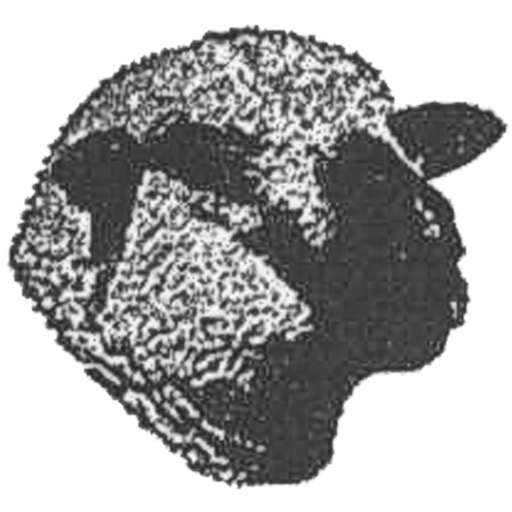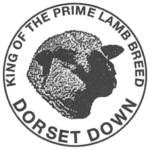Breed Qualities & Standards Of Excellence
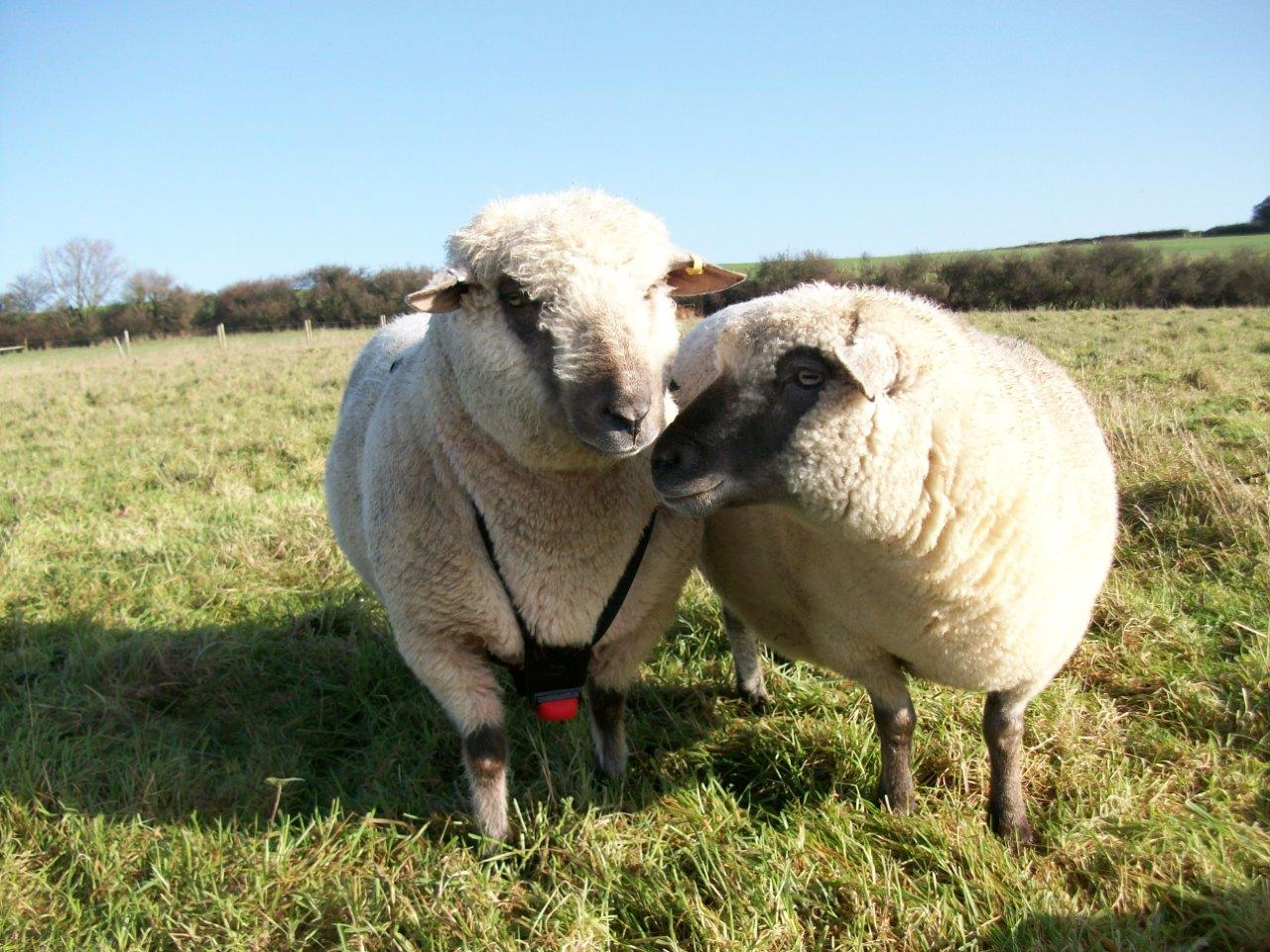
Mating
A Dorset Down ram can be used with confidence on any breed of ewe, and many farmers using Mule and hill ewes have been impressed by the much improved conformation of their lambs when sired by a Dorset Down. Difficult lambing cases can be eliminated even when used on lambs because of the small head and fine shoulders. The lambs are very hardy at birth, vigorous and ready to suckle.
Dorset Down rams will work at any time of the year, and because of their exceptionally high pheromone count also make very good teasers.
The Dorset Down ewe will take the ram in most months of the year, is apparently unaffected by extremes of temperature and being docile and adaptable is ideal for close winter housing. Its usual to put 40 to 50 ewes to one ram which is quite capable of serving some 20 ewes in 24 hours.
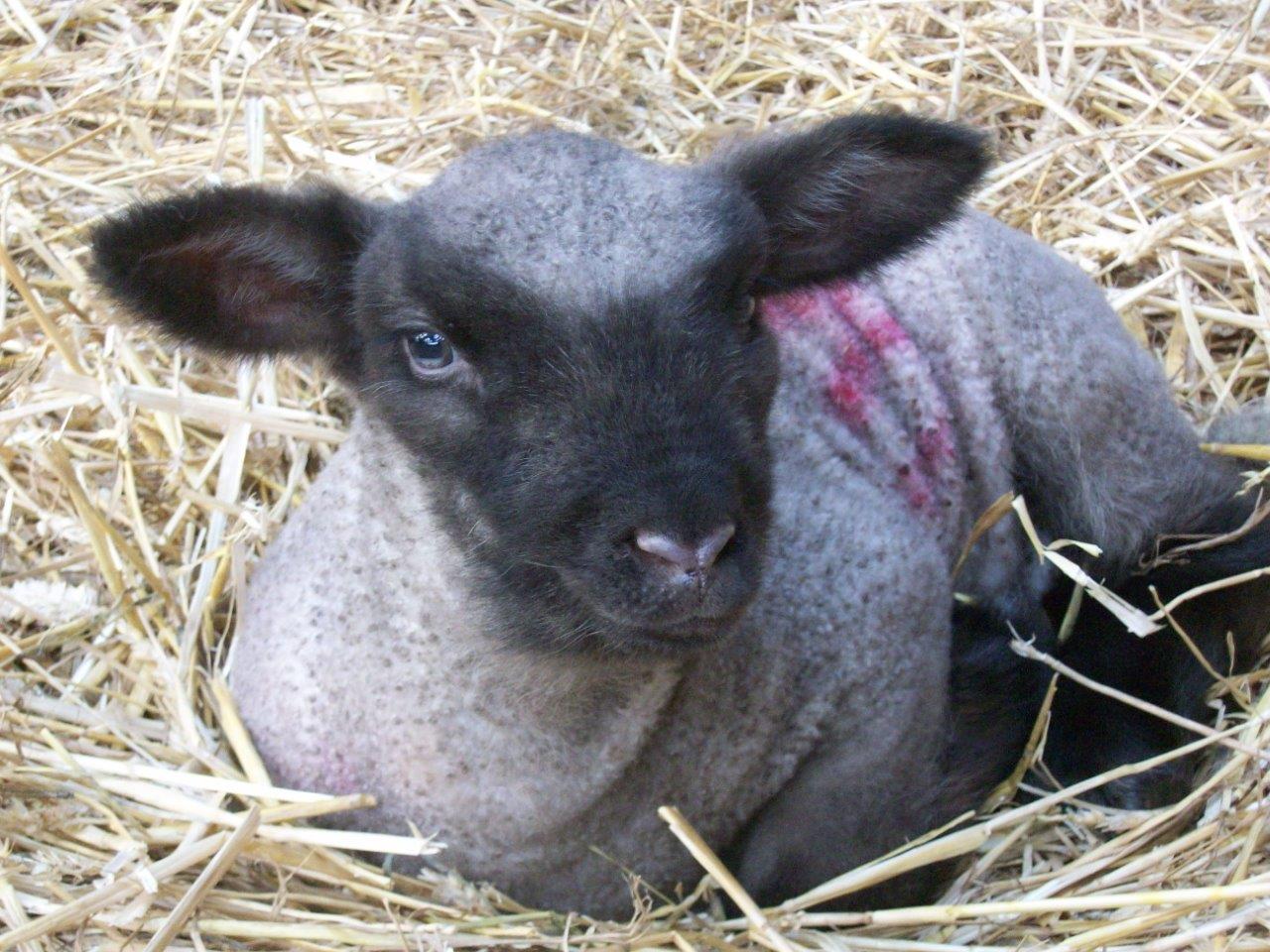
Early Maturing
The Dorset Down sire has no equal for early mature lamb production and produces an ideal carcase regardless of the sex of the lamb.
Single lambs can be brought up to 18kg dressed carcase weight within 10 to 12 weeks, twin lambs to the same weight within 12 to 14 weeks, while a good lamb gains up to 0.45kg per day live weight.
It has been shown that a properly managed commercial flock using a Dorset Down ram can clear all lambs by 16 weeks from lambing.
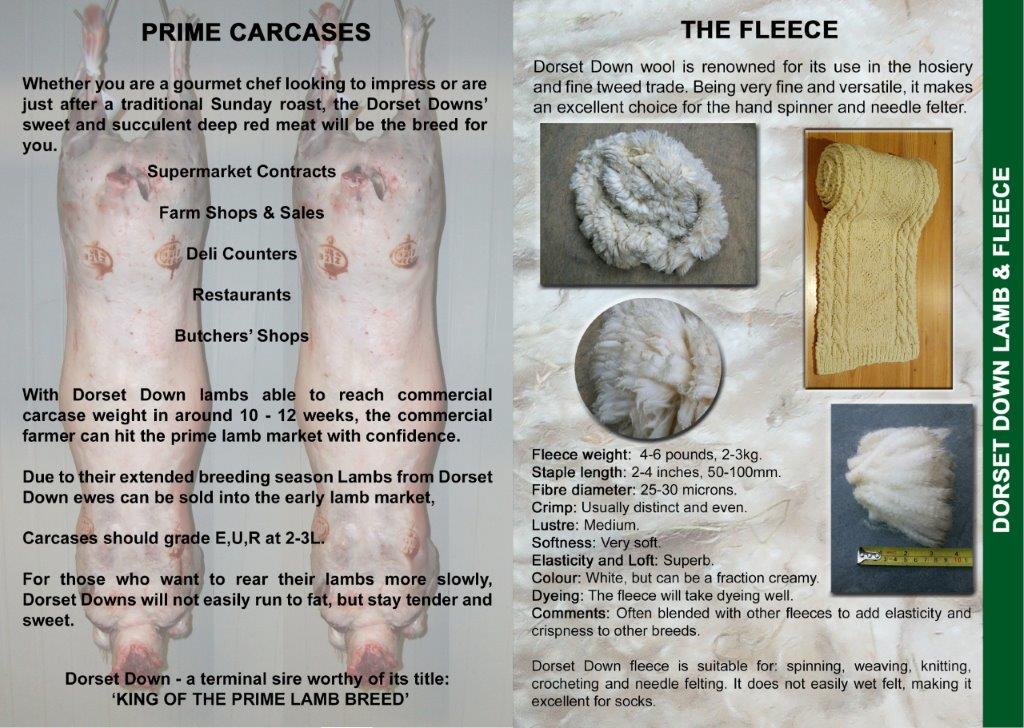
Carcass Conformation
The Dorset Down produces a lamb with fine bones and shoulders, well fleeced with an outstanding leg and is ideal for home or export trade, grading E.U.R. at 2-3L. the loin is perfectly covered with a full eye of meat and the shoulder is of particularly good flavour.
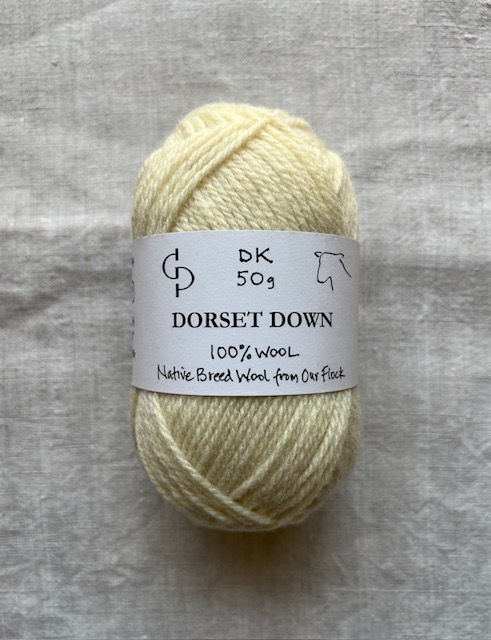
Fleece
The Dorset Down fleece is one of the most highly valued British fleeces.
The wool is short and fine in texture on mature sheep, while good tight wool on the lambs resists bad weather.
Fleece weights range up to 2.177kg washed and up to 2.450 kg greasy.
The British Wool Marketing Board classes Dorset Down wool as one of the highest grades in the country; considerable quantities of it go to the hosiery trade.
Dorset Down Standards Of Excellence
The Dorset down is a medium sized, active, alert sheep, free from all coarseness, embodying the good breed points common to all sheep breeds.
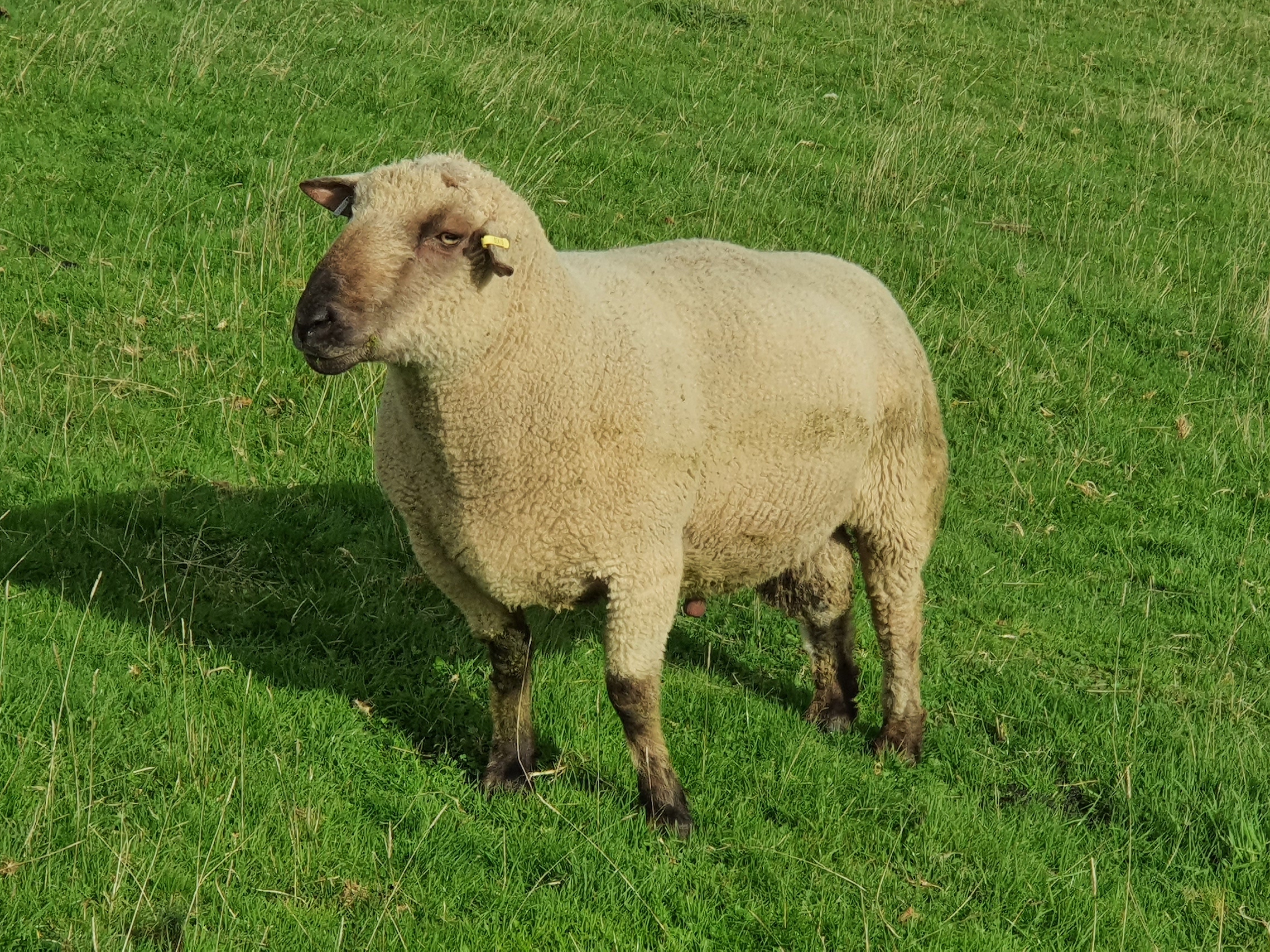
HEAD
Forehead wide, eyes prominent and lively, muzzle moderately fine in females, ears of medium length, thin and free from brown in colour carried almost horizontally above the level of the eyes. In rams, a bold ,masculine head is an essential feature.
NECK
Short, strong and set well into the shoulders.
CHEST & SHOULDER
Full, wide and deep; ribs well sprung with plenty of heart room.
LEGS & FEET
Legs straight, well up on pastern joints, brown in colour and set wide with a leg at each corner.
BACK
Level, with no dip behind the shoulder and covered with firm flesh. Wide, flat loin with tail head set well up.
HINDQUARTERS
Well filled, showing a good leg of mutton (Gigot) and good depth of meat from tail to crutch.
SKIN
Pink skin covered with a dense, fine quality wool with no dark fibres.
WOOL
Of fine texture and moderate length covering the whole body down to the hocks, around the cheeks, between the ears and on the forehead. No wool under the eyes, across the bridge of the nose or on the ears.
NB
It is desirable that the face, ears and legs should be of a good brown colour, not black and no black on the head.
UNDESIRABLE TRAITS
- Lack of Gigot
- Over or undershot jaw
- Blue skin
- Crooked legs or down on pastern joints
- Front legs too close together
- Short in length
- Horn scurs or evidence of their presence
- Black wool or black fibres in fleece
- Black over eyes or dark poll
- Speckled face or ears
